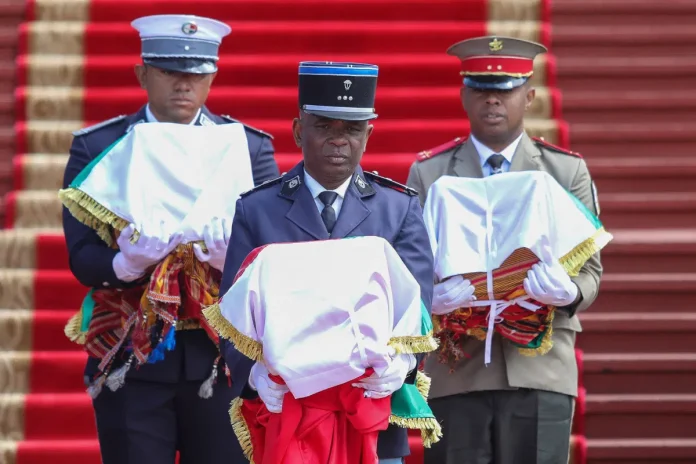
Madagascar has officially received the skull of a beheaded king—believed to be that of King Toera of the Sakalava people—along with two others, in a landmark gesture by France aimed at reckoning with its colonial past.
A Historic Return
During a solemn state ceremony on Tuesday at the Mausoleum in Antananarivo, President Andry Rajoelina, government officials, and Sakalava leaders gathered to receive the remains.
Members of the Sakalava community, dressed in traditional attire, carried the three skulls—placed in boxes draped with the Malagasy flag—through the capital before beginning their journey to Belo Tsiribihina, the king’s ancestral home.
The remains are expected to be ceremonially reburied later this week.
Colonial Legacy and Restitution
King Toera was beheaded in 1897 by French colonial troops during France’s conquest of Madagascar. His skull, along with hundreds of other human remains, was stored in Paris’s National Museum of Natural History for over a century.
The return of the skulls was made possible under a 2023 French law allowing the restitution of human remains taken during colonial expeditions—removing the previous requirement of special legislation for each case.
Identification and Acknowledgement
French Culture Minister Rachida Dati stated that a joint scientific commission confirmed the Malagasy origin of the skulls, though only one is presumed to be King Toera’s, based on historical and forensic evidence.
This is the first major restitution under the new law and is seen as a powerful symbol of France’s ongoing efforts to address its colonial legacy.
A Moment of Healing
The ceremony was both solemn and celebratory—a moment of dignity, remembrance, and historical justice. For many in Madagascar, especially among the Sakalava community, it marks a long-awaited step toward closure.
As calls for colonial accountability grow louder across former French territories, this symbolic handover reflects a shifting stance in how colonial-era injustices are remembered and redressed.

 Mzansi xxx
Mzansi xxx
